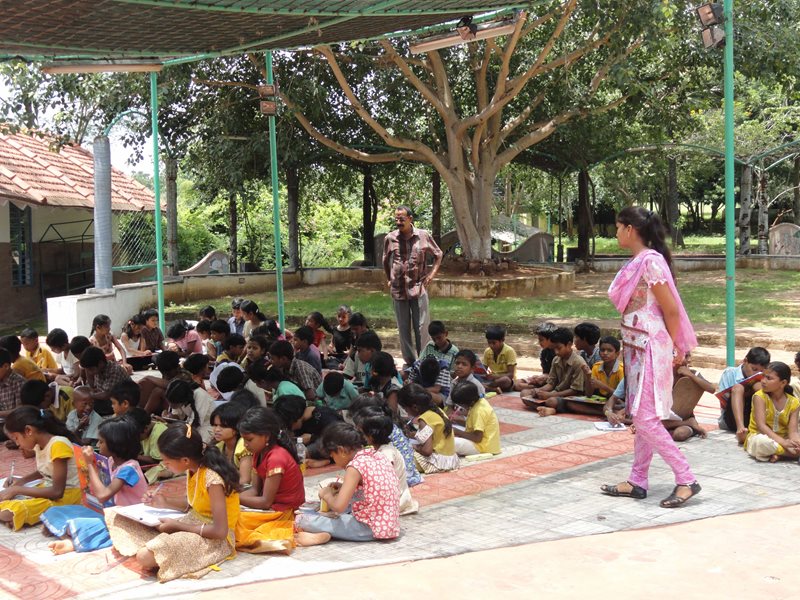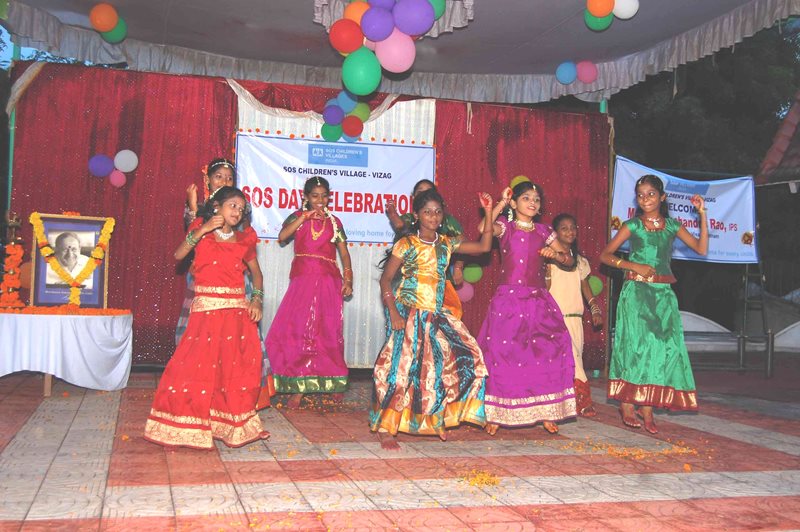Children often have to drop out of school to contribute to the family income

Children spending time under the shade in the garden (photo: SOS archives).
As Visakhapatnam has grown, its infrastructure has not been expanded accordingly. Housing has becoming more expensive as people move to the area. Those who arrive in the city with a sound education have a good chance of finding work and housing. However, for the masses that arrive with limited education, life is full of hardships and many end up living in poverty. In spite of government efforts to improve the situation, urban slums continue to be a problem. Basic infrastructure and services are often not accessible to those living in these precarious settlements, and the inhabitants' health often suffers as a result. The rates of HIV and AIDS continue to be of concern, especially regarding children who often lose parental care when the parents become ill and are not able to look after their children materially or emotionally.
Children are the first victims of the deprived social and economic situation. Children living in households where the main carers are disabled, elderly, ill, or those headed by females are most at risk of losing parental care. Families often rely on children to contribute to the family income – the children drop out of school and go out onto the streets to beg or hawk. In some cases, children end up living on the streets full-time, and are then particularly vulnerable to exploitation and abuse. Human trafficking is a problem in the area, especially for young girls and women from poor families who are promised decent jobs but end up as commercial sex workers or in forced labour.
Working closely with the community, aiming for self-sufficiency
SOS Children's Villages started working in Visakhapatnam after a devastating cyclone affected the area. We are based in a town called Bheemunipatnam which is located about 30 km from the city of Visakhapatnam. SOS Children's Villages has had support from the local government since we started working in the area, and we continue to work in close partnership with local agencies and community-based organisations in order to identify families who are in need of support from our family-strengthening programme.
What we do in Visakhapatnam

Dancing at an SOS Children's Villages celebration (photo: SOS archives).
If children can no longer stay with their families, they can find a loving home with one of the 14 SOS families, where they grow up with their sisters and brothers. The children attend the local schools, thus making friends with children from neighbouring families and integrating into the community. The children take part in many activities organised locally and the children from nearby families also participate in festivals that we celebrate. When the young adults are ready to leave their SOS families they can join our SOS Youth Programme. With the support of qualified professionals they are guided through this new stage of their lives, as they start vocational training courses, attend higher education or look for work. The young people are encouraged to develop perspectives for their future, learn to shoulder responsibility and increasingly make their own decisions.